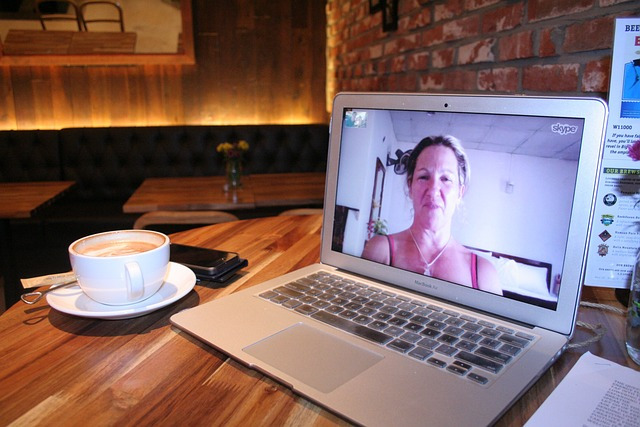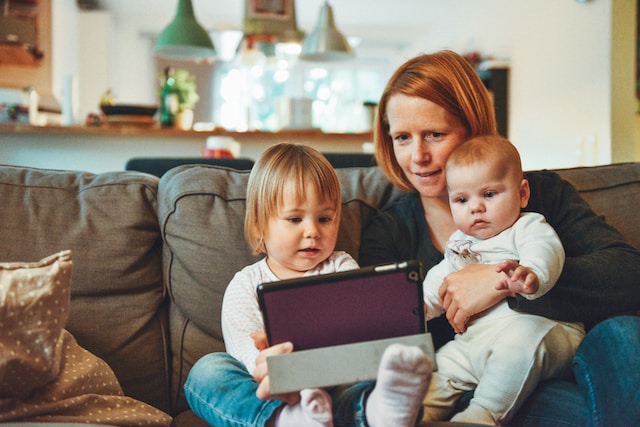Moving house is a thrilling adventure, but it also comes with its fair share of the emotional challenges of moving house. The excitement of a fresh new start is often accompanied by stress, worry, and relocation blues. But fear not! In this blog post, we’ll guide you through a checklist for success when moving house, covering everything from creating emotional space to coping with long-distance relationships. Get ready to make your moving experience a smooth and emotionally rewarding journey!
Short Summary
- Create a positive attitude and focus on the positives of relocation to reduce stress.
- Prioritise self care during your move for an easier transition.
- Connect with new neighbours and use communication & thoughtful gestures to maintain relationships when moving long distance.
How Moving House Impacts How You Feel

Moving house can have a significant impact on your emotions. The anticipation of change can create emotional space, but it may also trigger stress, worry, and even relocation blues. The key to managing these emotions is recognising them and taking proactive steps to minimise their impact.
After all, a long-distance move or a local move can be an opportunity to embrace new beginnings, meet new people, and create a fresh start moving to a new house. So, how do you face these emotional challenges and make your house feel like home?
Minimising Stress and Worry
Minimising stress and worry during a move involves thorough planning, organisation, and seeking support from friends, family, or professionals. Creating a timeline, making lists of tasks, and delegating tasks to family and friends can help you stay on track and make the process smoother.
This not only creates emotional space during the moving process, but also reduces stress levels and prevents mental health issues from arising. Plus, having the right approach and focusing on the positive aspects of moving home can make a world of difference in how you feel throughout the moving process.
Recognising & Reducing Relocation Blues
Relocation blues are a mix of excitement, connection, and anticipation that can arise after a move, which is considered one of the most stressful events in a person’s life. To manage relocation blues, recognise and embrace feelings of sadness, loneliness, and moving stress, and discover ways to cope and adjust.
Whether it’s exploring the new area, or hosting a housewarming party, focusing on the positive aspects of moving can help you feel more excited and less stressed about the impending move.
Creating Emotional Space During a Move
Creating emotional space during a move is crucial for maintaining mental well-being. By preparing well ahead of moving day, decluttering, practicing mindful packing, and making space for self-care, you can ensure a smoother and more emotionally balanced moving experience.
Not only will this reduce moving stress and worry, but it will also allow you to focus on the task at hand and create a sense of calm amidst the chaos of moving.
Prepare Well Ahead Of Moving Day
Preparing well ahead of moving day can help you avoid feeling stressed and ensure a successful move to the new place. By creating a checklist and establishing a time frame for the big day, you can stay organised and focused on the tasks at hand.
Including contingency plans in your moving preparations will ensure a smooth transition, no matter what surprises come your way.
Decluttering For Practical & Emotional Cleansing
Decluttering before a move can provide practical and emotional benefits, such as letting go of the past and creating a fresh new chapter of your life. Sifting through years of personal belongings can be an emotionally rewarding experience, allowing you to free yourself from the past and create a positive new beginning.
Plus, donating to charity while decluttering can breathe new life into items and contribute to a good cause.
DECLUTTERING CHECKLIST: ROOM-BY-ROOM
Why not download our printable Decluttering Checklist
DOWNLOAD NOW
Master Mindful Packing
Mastering mindful packing involves being present and focused during all the packing process, avoid feeling overwhelmed and allowing for reflection on memories. By taking regular breaks, planning ahead, and enlisting the help of family and friends, you can make packing a more stress-free process and even an enjoyable experience.
As you pack each item, take time to cherish the memories associated with it and appreciate the journey they represent. Of course, enlisting the help of a removal company to pack furniture and non-sentimental stuff can also be a good idea to make the whole process a bit easier.
Make Space For Self-Care
Making space for self-care during a move is essential to maintain a person’s mental health and physical health. Amidst the chaos, take breaks, get enough sleep, eat healthy meals, and engage in activities that bring joy and relaxation.
It is also a great time to connect with family for additional support, ensuring a smoother and more enjoyable moving experience.
Navigating New Beginnings: Settling into Your New Home
Settling into a new home involves mindful unpacking, establishing a new routine, meeting new neighbours, and embracing change. By navigating these new beginnings, you can ease the transition and create a sense of stability in your new environment. The key is to stay focused on the positive aspects of the new home, reducing stress and anxiety related to the move.
Take the time to unpack and organise your belongings, and create a comfortable living space.
Master Mindful UN-Packing
Mindful unpacking involves being present and focused during the unpacking process, reducing moving stress, and creating a comfortable living space. By taking your time to unpack and arrange items in a way that is pleasing to you, you can enjoy the process and create a sense of calm in your new place.
Remember, there is no rush – this is your chance to make your new house feel like a home.
Establishing A New Routine
Establishing a new routine in the new place can help ease the transition and create a sense of stability. Identify activities you want to include in your routine, such as exercise, meal times, and leisure activities, and create a schedule that works for you and your family. Consistency is key, so be sure to stick to the routine as much as possible for maximum success.
Creating a routine can help you feel more in control of your new environment and provide a sense of belonging.
Meeting Your New Neighbours
Meeting new neighbours and building connections can help combat feelings of loneliness and isolation after a move. Knocking on their door and introducing yourself is a great way to start forming meaningful relationships with your new neighbours, and potentially make new friends.
Participating in local events and extending an invitation for dinner can also foster strong connections and help you feel more at home in your new community.
Embracing Change
Embracing change and focusing on the positive aspects of moving to a new place can help minimise stress and anxiety related to the move. Take time to explore the new area, get to know the neighbours, and discover new activities to do in the new location.
Remember, every new beginning comes with its challenges, but with the right attitude, you can turn these challenges into exciting opportunities.
Coping with Long-Distance Relationships After a Move
Coping with relationships after a move can be challenging, but maintaining communication, planning reunions, organising visits, and using technology to stay connected can make all the difference. By putting in the effort and staying committed, you can ensure your relationships remain strong, even when miles apart.

Communication Is Key
Communication is key in maintaining relationships, ensuring both parties feel supported and connected despite the distance. Stay in touch regularly through phone calls, video calls, or text messages, and make time for meaningful conversations that keep the bond strong.
Sending thoughtful gifts or care packages can also show that you are thinking of the other person, even when you are far away.
Reunite So The Spark Can Reignite
Planning reunions and visits can help maintain the bond between friends who are separated by distance. Set a date and time, find a convenient location, and make sure everyone is available for a successful reunion.
These gatherings not only reignite the spark in your relationships, but also create new memories to cherish.
Family Visits
Family visits can provide comfort and support during the adjustment period after moving home. Having loved ones visit can help minimise stress and anxiety associated with the move, providing a sense of comfort and security.
It can also be a great opportunity to reconnect with friends and family and share experiences in your new home during different events.
Bridge The Gap With An App
Using technology and apps can help bridge the gap between friends and family, allowing for regular communication and connection. Apps such as Skype, Facetime, and Zoom can be used to easily stay connected with people, ensuring that distance does not stand in the way of maintaining strong relationships.
These apps are easy to use and can be accessed from any device, making it simple to stay connected after moving home to a new region or even a new country.
Managing Stressful Life Events During a House Move
Managing stressful life events during a house move involves addressing financial worries, maintaining a work-life balance, and ensuring the happiness of everyone, including pets. By tackling each of these challenges head-on, you can minimise stress and enjoy a smoother moving experience.
To address financial worries, create a budget and stick to it. Make sure to factor in all of the above.

Financial Worries Should Be Faced Head On
Facing financial worries head-on can help minimise anxiety related to moving expenses and budgeting for other costs involved such as stamp duty. By creating a realistic budget and seeking professional help when needed, you can take control of your finances and make informed decisions about your move.
Remember, a successful move is not just about the physical relocation of your belongings; it’s also about taking charge of your financial well-being.
Work-Life Balance (Should I Take Time Off To Move House?)
Balancing work and personal life during a move can help reduce excessive stress, generate positive feelings and ensure a smoother transition to the new home. Speak to your employer about taking a few days off work, and confidently ask family and friends for help with the move. If you are starting a new job try and move a few days before the job start date.
Taking time off allows you to focus on the task at hand and gives you the opportunity to settle into your new home without being overwhelmed by work commitments.
Family Dynamics – How To Keep Everyone Happy, Even Your Pets
Maintaining family dynamics and keeping everyone happy, including pets, is essential for a successful move and adjustment to the new environment. Ensure that everyone’s needs are taken into consideration, and provide extra love and care for your pets during this time of transition.
Keeping routines and schedules as consistent as possible can help everyone adjust to the new environment quickly and smoothly.
Summary
In conclusion, moving house is an exciting yet emotionally challenging experience. By addressing the emotional impact of moving you can feel excited by the future whilst also creating emotional space, navigating new beginnings, managing relationships, and handling stressful life events, you can ensure a successful and fulfilling move. Remember, every challenge comes with an opportunity for growth and personal development. So embrace the change, and welcome the fresh start.
MOVING HOUSE CHECKLIST
Why not download our printable Moving House Checklist
DOWNLOAD NOW
Frequently Asked Questions

How does moving house affect emotional development?
Moving house can be a shock for kids, and may lead to feelings of anger, sadness, and isolation especially when leaving old friends behind. Moving more than once during childhood has been linked to issues such as emotional and peer-relationship problems, conduct and hyperactivity.
Parents should start preparing their children emotionally for moving to a new neighbourhood a few weeks ahead to help them adjust.
What is the high-stress impact of moving house?
Moving house to a new location can be a highly stressful event, causing major changes, high-stakes decisions, financial stress and lack of control.
The emotional and physical toll of moving can be immense, and it is important to take the time to plan and prepare for the move. Taking the time to research the area and find a reliable moving company.
How can mindful packing help during a move?
Mindful packing can make a move less stressful and reflective by allowing you to focus on each item being packed, fostering an appreciation of all the memories they contain.
By taking the time to carefully pack each item, you can create a sense of closure and peace of mind as you move on to the next chapter of your life.
What are some strategies for settling into a new home?
Establish a new routine, mindfully unpack, get to know your new neighbours, maybe make new friends, and embrace change – these are all effective strategies for making yourself feel at home in a new house.
Making the transition to a new area and home can be daunting, but with the right attitude and a few simple steps, you can make the process easier and more enjoyable. Start by taking the time to get to know your new surroundings. Take a walk around the neighbourhood, explore the local area.
How can technology and apps help maintain relationships after a move?
Technology and apps like Skype, Facetime, and Zoom make staying connected with loved ones living at a distance much easier, allowing for regular communication to maintain meaningful relationships.
These tools make it possible to have face-to-face conversations with people who are far away, which can help bridge the physical distance between loved ones.
Video calls also provide an opportunity to share special moments, such as birthdays.






